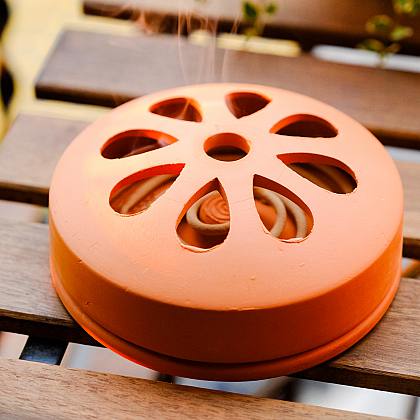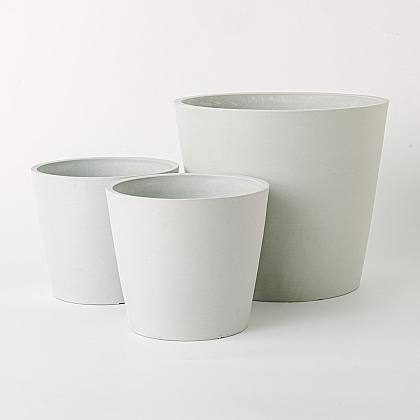5 Plants that repel mosquitoes
With the arrival of summer and high temperatures come the unwelcome mosquitoes. There are some 3,500 varieties of this annoying insect, which not only insists on annoying you while you sleep or leaving your limbs full of small wounds, but can also transmit quite serious diseases.

With the arrival of summer and high temperatures also come the unwanted mosquitoes. There are some 3,500 varieties of this annoying insect, which not only insists on annoying you while you sleep or leaving your limbs full of small wounds, but can also transmit quite serious diseases. In fact, in Spain we have recorded the presence of the tiger mosquito, an invasive Asian species, which causes allergic conditions and can be a vector of tropical viral diseases.
The simplest solution is to smear yourself from head to toe with some repellent, but not all of us are comfortable with the idea of staying covered in some toxic chemical or, worse still, putting it on very young children. The good news is that you don't have to sacrifice yourself to mosquitoes, you can take advantage of mosquito repellent plants. Not only will you have the perfect excuse to buy another plant (because we know you can never have enough of them), but you can also benefit from their properties.
do plants repel mosquitoes?
Plants that repel insects are very effective. Most of them have a strong smell that repels them. These characteristics have been developed by the plant to keep pests that could affect its growth and reproduction at bay. In fact, some commercial repellents use extracts of these plants in their composition, such as citronella.
In order to take advantage of these properties, it is important to know that the repellent action works in an area close to the plant.
That is to say, the fact that you have some insect repellent plants planted in your backyard will not guarantee that there will be no mosquitoes inside your home. What you should do is create a protective fence with these plants in areas where you know these pesky insects enter or breed. For example, you can place potted plants on window sills or plant them in the garden in the area where you usually sit or stand.
Another option is to use your plants to make homemade, organic and 100% natural repellents. In this list of plants that repel mosquitoes we will specify the possible uses and locations so that you can maximise their potential.
5 plants that repel mosquitoes
Lavender
We all know lavender, it is one of the favourite scents of grannies and manufacturers of air fresheners, detergents and more. But did you know that it is an excellent repellent? Not only does it repel mosquitoes, but it also repels moths, fleas and flies. This makes it a great plant to have, especially if you have pets that go out in the garden, as it will prevent the proliferation of fleas and ticks.
Its scent is delicious, so you can use it as a natural repellent. As it can also be grown in a pot, you could have it in your bedroom. A delicious scent will help you fall asleep, eliminate stress and anxiety. You can use its flowers in an infusion and drink it, but you can also spray it on your skin.
Catnip
This variety of catnip, whose scientific name is nepeta cataria, is well known to cat people. It is a small plant, which thanks to nepetalactone, its active substance, is able to repel mosquitoes, flies and many insects. In fact, in the past it was also believed to repel scorpions. This mosquito repellent plant is believed to be 10 times more powerful than most commercial insecticides.
It also has other properties: it is antipyretic, helps to improve flu symptoms and premenstrual syndrome. If you are going to plant catnip, you should know that this herb has pleasant effects on most cats, so it is very likely that your house or garden will become the favourite place for all the felines in your neighbourhood.
If you hate mosquitoes, love cats and dream of raising your own army of kitties, then this mint is what you need to plant outside your home.
Citronella
It is the mosquito repellent plant par excellence, so much so that it is difficult to find any natural or industrial product that does not contain extracts of this plant. The intense aroma, similar to lemon, is what mosquitoes dislike so much that it drives them away. Citronella is a plant that requires little care, so you will have no problem planting it in pots or planters.
When you buy it, check that you are getting a citronella and not a lemongrass, as the two are almost identical.
Both plants are in the genus cymbopogon and belong to the family Poaceae . Although the leaves are the same, the big difference is in the stems: citronella's are dark, almost red, while lemongrass's are green.
Rosemary
We all know rosemary from its use in cooking, but what few people know is that this plant has been used to repel mosquitoes since time immemorial. It has a compound called geraniol that effectively fights insects such as flies, fleas, ticks and small mosquitoes on nearby plants.
To use it you can burn some leaves in a fire, making an incense burner or with a candle. You can also hang twigs to scare away mosquitoes. It is possible to make an infusion and spray it on the skin to prevent bites.
Basil
This aromatic herb, so popular in Mediterranean cuisine, is used to eliminate mosquitoes. Thanks to estragole, the active substance that gives it its smell, it is unbearable for some insects. In fact, it is often planted alongside rosemary to protect crops and plants from mosquitoes and other pests. It is possible to grow it in a pot indoors, as long as it is in a well-lit area.
You can make your own insect repellent by making an infusion of basil and storing it in the refrigerator in a container with a diffuser. You can add some vodka to keep it longer. You can also put dried basil and bay leaves in clothes drawers to keep other insects away.


